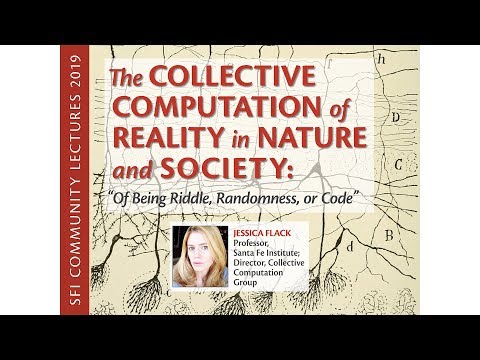Description:
Explore the concept of collective computation in nature and society through this thought-provoking lecture by Jessica Flack, professor at the Santa Fe Institute. Delve into the idea that nature's first computers predate human invention, challenging the notion that complexity arises solely from interactions among simple components. Examine how cells, neurons, bees, and humans, despite their inherent complexity, operate under constraints and are prone to errors in information processing. Discover how collective computation evolved as a solution to imperfect information processing, sometimes revealing fundamental truths about the world and other times constructing a shared reality with its own significance. Investigate how this understanding of natural computation challenges traditional theoretical foundations of computation. Drawing from diverse fields such as biology, physics, and complexity science, gain insights into the role of collective computation in the origins of biological space and time, coarse-graining in nature, causality, and robustness. Engage with thought-provoking questions in biology and evolution, and explore various types of computation, including examples like one-pot chemical reactors.
Read more

The Collective Computation of Reality in Nature and Society
Add to list
#Computer Science
#Artificial Intelligence
#Collective Intelligence
#Science
#Physics
#Engineering
#Electrical Engineering
#Circuits
#Biology
#Biological Systems
#Evolution